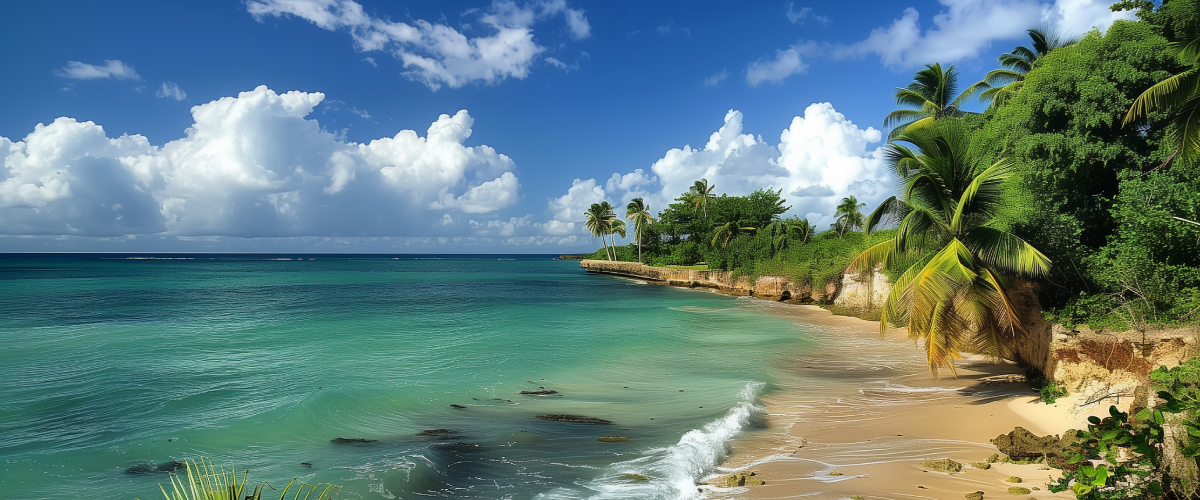Back in 2012, Puerto Rico, a US territory, introduced tax breaks for wealthy Americans to move there. You can read more information on this here: tax haven Puerto Rico.
With this specific law called Act 22, anyone who becomes a bona fide resident of Puerto Rico is now eligible for the following benefits:
- 100% tax exemption from Puerto Rico income taxes on all Puerto Rico source dividends and interest payments.
- 100% tax exemption from Puerto Rico income taxes on all short- and long-term capital gains accrued since becoming resident in the territory.
By itself, this exemption isn’t particularly noteworthy. But the US Tax Code provides that bona fide residents of the territory need not pay federal income tax on “income derived from sources within Puerto Rico.”
Together, Act 22 and the federal tax incentives are a big deal, because they provide a way for wealthy US citizens or green card holders who are now paying federal income taxes as high as 39.6% (plus the 3.8% Obamacare tax) to relocate to Puerto Rico and potentially cut their federal income taxes to zero. And they can do so without needing to expatriate (i.e., give up US citizenship).
Uncertainty Around the Longevity of the Incentives
While I’m not against reducing taxes, I was doubtful about how long Act 22 would last and whether Puerto Rico would keep its promise of no income tax for the next 20 years. I thought then, and still believe, that either:
- Congress will repeal or substantially restrict the federal incentives for Puerto Rico; or
- Puerto Rico will repeal Act 22; or
- The courts of Puerto Rico will overturn the incentives on the grounds that they violate the territory’s constitution.
Puerto Rico Tax Incentives: How Much Can You Really Save?
Much has been made of the Puerto Rico Tax Incentives brought in in 2012. But how much tax could you really save? And do you qualify? Find out here: Puerto Rico tax incentives.
Concerns from an Insider
Many financial experts were promoting Puerto Rico’s tax incentives. However, that changed last September when someone who had worked with the White House on tax issues related to Puerto Rico contacted me. He agreed with my doubts.
But until a few months ago, I hadn’t found anyone else who shared my skepticism about Act 22. Many financial experts were promoting Puerto Rico’s tax breaks for wealthy Americans. But that changed last September when someone who had worked with the White House on tax issues related to Puerto Rico contacted me. He agreed with my doubts:
“You’re the only person I’ve read who has understood this isn’t all it’s all cracked up to be.”
Influential Voices Questioning the Incentives
This contact led to another essay about Puerto Rico, where I shared his concerns. This sparked a strong response from a financial publisher who was promoting the incentives. They claimed they could prove my doubts wrong. But with the insider’s help, I addressed their arguments in a follow-up essay. Surprisingly, not many people noticed this debate, although it did catch the attention of some influential people in Congress. The media hype around Puerto Rico’s tax benefits continued, but occasionally, someone would mention my concerns, as in this article from Forbes.
That’s now started to change. Another true insider—no less than Dr. Martin Sullivan, the chief economist for the highly respected “Tax Analysts” daily and weekly publications—has now weighed in on the Act 22 incentives. (Dr. Sullivan is a former professor of economics at Rutgers University and was a staff economist at the congressional Joint Committee on Taxation.)
In the March 30, 2015 Tax Notes, quoting from my most recent essay on Puerto Rico, he makes the case that Congress should wipe out the tax benefits associated with Act 22. Given Dr. Sullivan’s reputation and “clout,” my guess is that Congress will take his suggestions very seriously.
So, should you move to Puerto Rico for these tax breaks? It’s your choice. Although Act 22 might continue indefinitely, it’s important to consider why many people are leaving Puerto Rico. This article gives a good summary. Also, remember that when too many people use a tax loophole, it often gets closed. This has happened in Puerto Rico before and could happen again.
Need Help?
Over the past 40+ years, we’ve helped thousands of clients build better wealth protection plans. Part of that is to look for legal ways to minimize your tax burden.
Interested in finding out how we can help you? It starts with a free, no-obligation consultation with one of our Associates. You can do that here.



